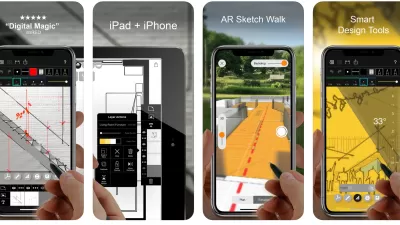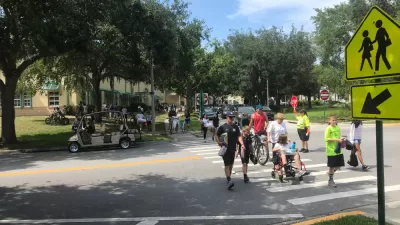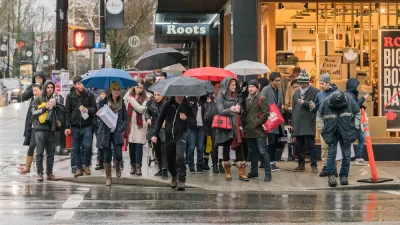As more governments embrace civic hackathons as a way to tap enthusiastic young software developers quickly and cheaply, a backlash to these "app-developing marathons" is growing along with them. Does their local focus doom them to irrelevance?
"We've heard the argument before that hackathons aren't all they're cracked up to be, even that they're downright bad for you," says Emily Badger. "Now the critique, in particularly blunt language, is coming from [Bill Schrier] the former chief technology officer of the tech-friendly city of Seattle."
"Schrier argues, in short, that most local apps developed in hackathons and contests are unsustainable because they can't be be monetized or scaled up to other cities. The two problems, as Schrier points out, are closely related."
"Without standardized data, a great app built in one city won't function anywhere else," explains Badger. "But more importantly – and this is Schrier's most compelling point – no one will make real money off of this stuff until 'data is standardized so a single app – a crime reporting app, for example – can be downloaded and used across an entire state or the nation with the potential for millions of users.'"
FULL STORY: Are Civic Hackathons Stupid?

Alabama: Trump Terminates Settlements for Black Communities Harmed By Raw Sewage
Trump deemed the landmark civil rights agreement “illegal DEI and environmental justice policy.”

Planetizen Federal Action Tracker
A weekly monitor of how Trump’s orders and actions are impacting planners and planning in America.

The 120 Year Old Tiny Home Villages That Sheltered San Francisco’s Earthquake Refugees
More than a century ago, San Francisco mobilized to house thousands of residents displaced by the 1906 earthquake. Could their strategy offer a model for the present?

In Both Crashes and Crime, Public Transportation is Far Safer than Driving
Contrary to popular assumptions, public transportation has far lower crash and crime rates than automobile travel. For safer communities, improve and encourage transit travel.

Report: Zoning Reforms Should Complement Nashville’s Ambitious Transit Plan
Without reform, restrictive zoning codes will limit the impact of the city’s planned transit expansion and could exclude some of the residents who depend on transit the most.

Judge Orders Release of Frozen IRA, IIJA Funding
The decision is a victory for environmental groups who charged that freezing funds for critical infrastructure and disaster response programs caused “real and irreparable harm” to communities.
Urban Design for Planners 1: Software Tools
This six-course series explores essential urban design concepts using open source software and equips planners with the tools they need to participate fully in the urban design process.
Planning for Universal Design
Learn the tools for implementing Universal Design in planning regulations.
Clanton & Associates, Inc.
Jessamine County Fiscal Court
Institute for Housing and Urban Development Studies (IHS)
City of Grandview
Harvard GSD Executive Education
Toledo-Lucas County Plan Commissions
Salt Lake City
NYU Wagner Graduate School of Public Service





























